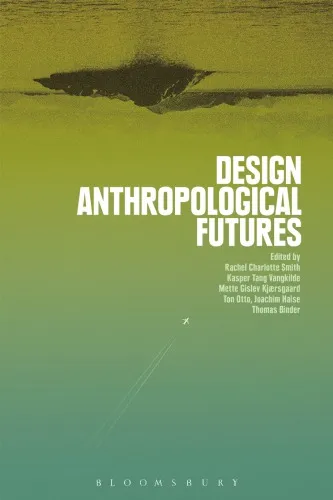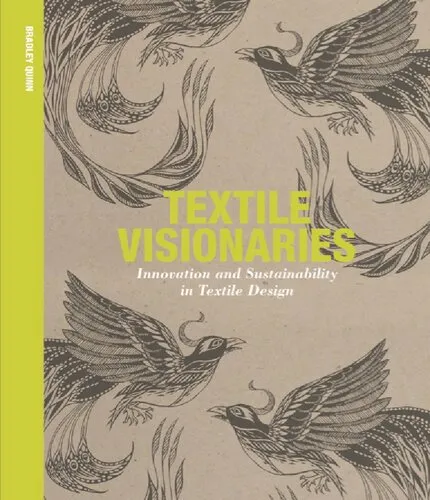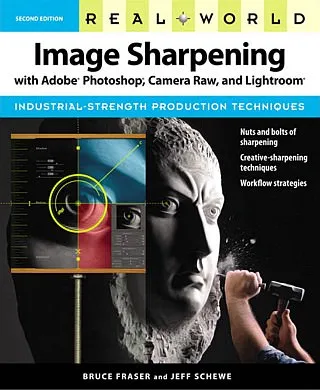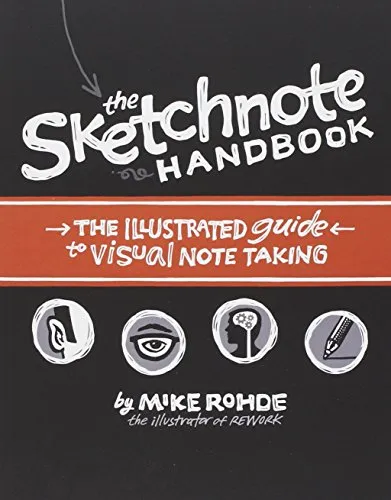Design Anthropological Futures
4.5
Reviews from our users

You Can Ask your questions from this book's AI after Login
Each download or ask from book AI costs 2 points. To earn more free points, please visit the Points Guide Page and complete some valuable actions.Related Refrences:
Introduction
Welcome to the fascinating intersection of anthropology and design. Design Anthropological Futures, edited by Rachel Charlotte Smith, Ton Otto, Kasper Tang Vangkilde, Joachim Halse, Thomas Binder, and Mette Gislev Kjaersgaard, is an intellectually stimulating exploration of how design and anthropology can collaborate to create meaningful futures. This book embarks on a journey to uncover how anthropological insights and design practices intersect to address pressing societal issues, foster innovation, and shape the way we envision the world. It challenges traditional boundaries, bringing together diverse perspectives to reimagine what’s possible when designing for human experiences.
The editors and contributors of this book are trailblazers in these converging disciplines, making this work an essential resource for scholars, designers, anthropologists, and professionals dedicated to exploring how human-centric approaches can contribute to social, cultural, and technological transformations. This book isn’t merely an academic text; it is a call to action for shaping more inclusive and sustainable futures through collaborative creativity.
Detailed Summary of the Book
Design Anthropological Futures is structured around key themes that highlight the evolving relationship between the fields of design and anthropology. The book opens with a theoretical framing of design anthropology, explaining how the fusion of these disciplines can address contemporary challenges. It then delves into case studies, methodologies, and critical reflections, presenting a comprehensive narrative about their symbiotic potential.
The contributions in this book illustrate how anthropology, with its ability to deeply understand human cultures and behaviors, can empower design practices to be more grounded, relevant, and impactful. Similarly, design’s focus on problem-solving and creating tangible solutions can guide anthropological insights toward practical and innovative applications. Together, they form a robust framework to design for a more interconnected and equitable world.
Throughout the book, the authors emphasize collaborative approaches, encouraging practitioners from different disciplines to work together. By illuminating how anthropological research can inform the creative process, the book advocates for a reciprocal exchange of ideas that pushes both fields forward. The examples presented range from urban development projects and sustainability initiatives to digital technologies and participatory community engagements. Each chapter provides a unique lens on how we can rethink innovation in ways that prioritize humanity and diversity.
Key Takeaways
- The integration of anthropology and design enables more thoughtful and culturally informed creative practices.
- Design anthropology bridges the gap between understanding human behavior and implementing impactful solutions.
- Collaborative projects drive innovation and foster new ways of thinking about societal challenges.
- Practical examples and case studies demonstrate actionable methods to incorporate anthropology into design processes.
- By addressing complex global issues, this approach paves the way for more sustainable and equitable futures.
Famous Quotes from the Book
"Design and anthropology are not merely tools for observation and creation; they are powerful lenses through which we can reimagine the world and the futures we want to build."
"Collaboration between disciplines is not just about combining expertise, but rather about creating new ways of thinking and acting together."
Why This Book Matters
The significance of Design Anthropological Futures lies in its ability to open up new avenues for cross-disciplinary thinking and problem-solving. In an increasingly complex world, the challenges we face demand innovative, collaborative approaches. This book provides a strong foundation for redefining creativity and addressing global concerns with a focus on inclusivity, sustainability, and cultural relevance.
Whether you are a designer seeking to infuse your work with human-centered insights, an anthropologist curious about how your expertise can inform practical applications, or anyone interested in driving positive change, this book offers an invaluable resource. It encourages readers to think beyond disciplinary boundaries and engage in processes that challenge the status quo.
By addressing questions about power, ethics, and representation, Design Anthropological Futures advocates for an approach that is as critical as it is imaginative. It demonstrates how interdisciplinary partnerships can lead to transformative outcomes, impacting not only the practice of design and anthropology but also the world at large.
Free Direct Download
You Can Download this book after Login
Accessing books through legal platforms and public libraries not only supports the rights of authors and publishers but also contributes to the sustainability of reading culture. Before downloading, please take a moment to consider these options.
Find this book on other platforms:
WorldCat helps you find books in libraries worldwide.
See ratings, reviews, and discussions on Goodreads.
Find and buy rare or used books on AbeBooks.
1505
بازدید4.5
امتیاز0
نظر98%
رضایتReviews:
4.5
Based on 0 users review
Questions & Answers
Ask questions about this book or help others by answering
No questions yet. Be the first to ask!














